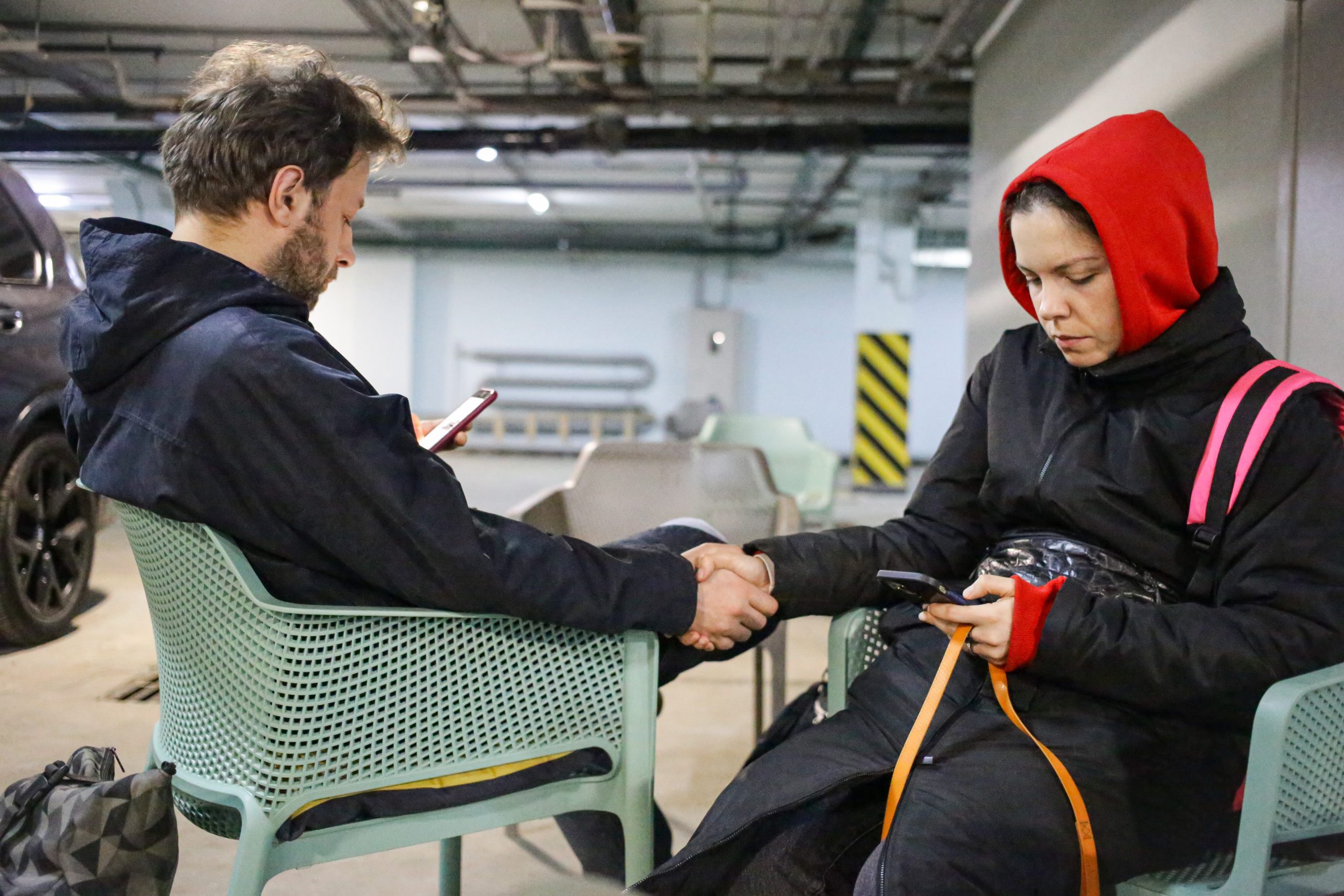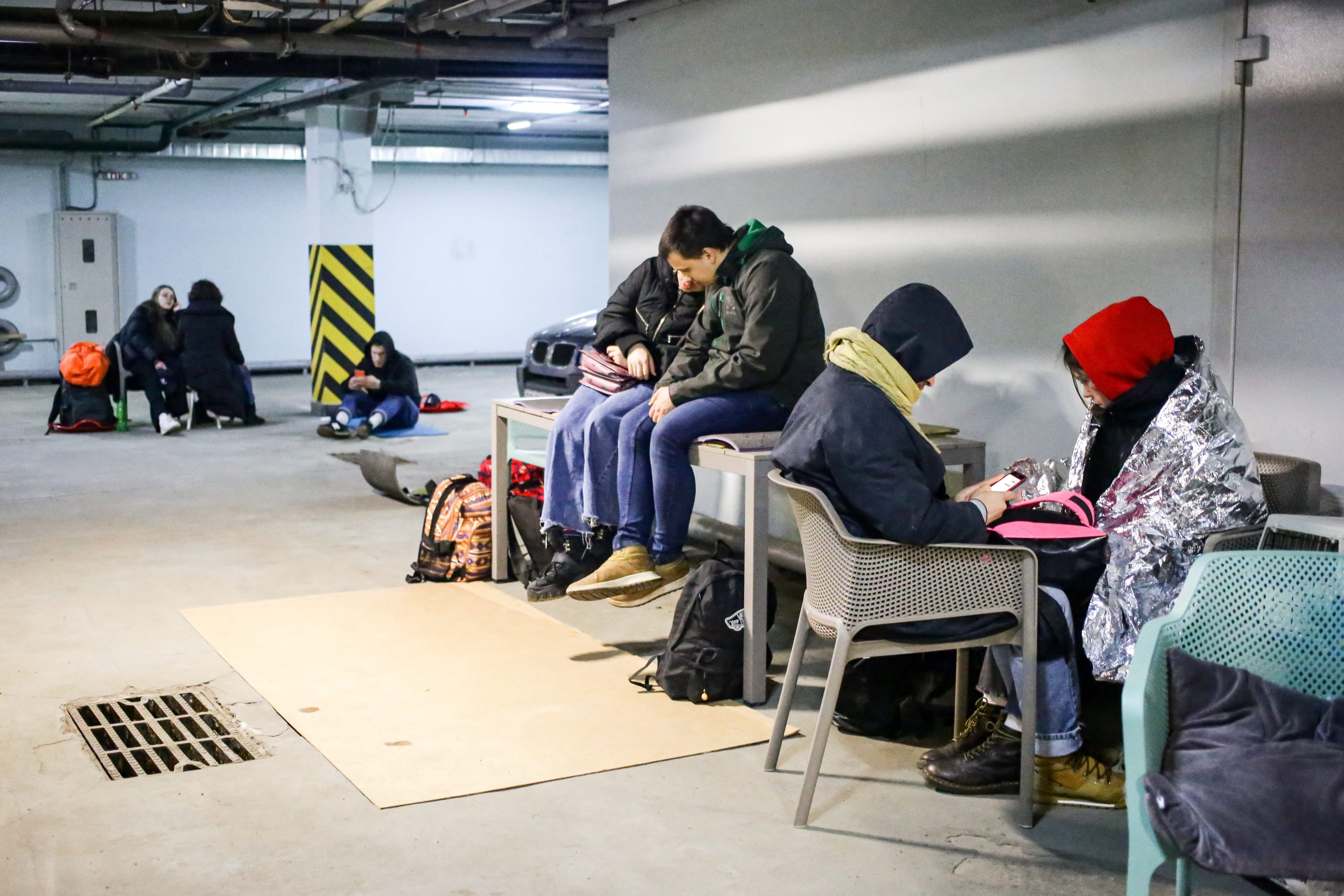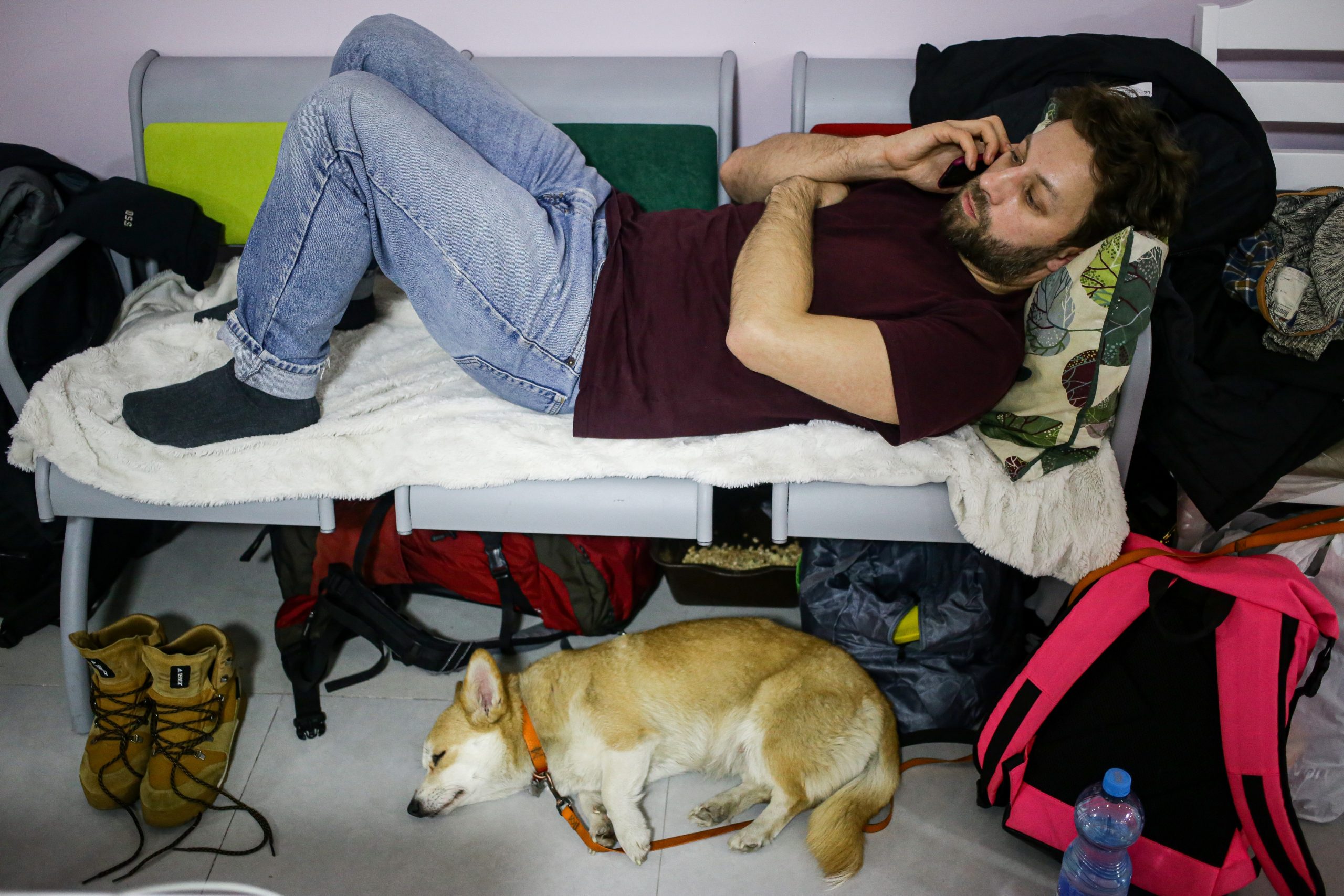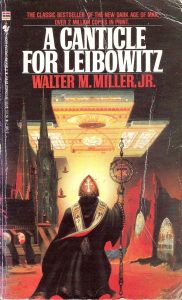On February 24th, I awoke to what felt like typical Thursday morning, engaging in my usual routine of checking social media outlets. It was there, via Instagram, that I learned of the missiling of Kyiv, prompting me to immediately message my friend Yura Ivanov to see if he and his partner Nata were safe. For months previous, there had been a building tension and awareness of Russian President Putin's intentions to invade Ukraine, yet it seemed to be nothing more than concerning heresey. How very wrong I was in my assumptive ignorance. I am a descendent of Ukrainians displaced under Stalinism and when violence is visited upon Ukraine, it is always difficult. With this recent invasion, it has brought about an increased sense of togetherness for my family, and has been simultaneously heartbreaking knowing what my friends have to live with on a daily basis. As the one year mark of this invasion passes, in tribute to the strength and endurance of Ukraine, I decided to give my friend, Yura, the opportunity to give his perspective of what it's like to be Ukrainian during wartime.
Introduce yourself, say a bit about yourself:
My name is Yura Ivanov. I’m 36. I live with my girlfriend Nata and two pets of ours (a cat and a dog) in downtown Kyiv. I’m a copywriter and translator working remotely. I play guitar, write songs and love discovering new artists and bands from different music eras and genres. I’m also keen on watching documentaries on literature, art and history. My parents live in the South of Ukraine, and my younger brother lives in New York, NY.
What was your life like before the invasion?
The COVID-19 pandemic affected the lives of people all around the world–Ukraine, in particular. Unfortunately, we lost Nata’s mother to the disease. She was 56. Everyone I know went through Covid at least once. Surprisingly, I still haven’t had it.
With the restrictions that pandemic brought, I wouldn’t call our lives back then very bright and eventful. We interacted with a narrow circle of our friends and relatives, started working remotely and didn’t move around or travel much. Of course, we look at the pre-war years differently now. I would say that was a quiet time we spent mainly inside learning a lot about each other and our close ones.

How has the invasion impacted your life?
Today marks one year of the invasion, and I clearly remember waking up at about 5 AM to the sound of distant explosions. It’s hard to describe that feeling and I won’t even try to, but it still hasn’t left me. Who knows if it ever will?
At the moment, half of my friends are either at the battlefield or have been there. Unfortunately, some of the people I knew were killed. A guy from my hometown lost his life after a missile hit a 5 storey residential building. It’s sad to write about it, but what really worries me is that we’ve become more or less accustomed to such news. Although there were reports of the atrocities carried out by the terrorist russian army that I still find impossible to digest.

The invasion has completely changed the way we lived and treated each other. I really hope we have become more sympathetic and careful to ourselves and people around us–this is the only way to survive both mentally and physically. I’m deeply grateful to the Ukrainian Armed Forces and thousands of volunteers all around our country for being able to write that.
What would you like people in the U.S. to understand about what is happening to Ukraine?
First of all, I want to thank you, Ilka. Thank you and all my friends from the US for all the kind words of support you've been sending all this time.

It’s been a year since Ukraine has been invaded by the terrorist russian army. Those people have no moral principles, no mercy to civilians, and no count to their own casualties. Meanwhile, russia’s putin claims Ukraine never existed and threatens the Western world with nuclear missiles. Sounds crazy, right? Not for the majority of russian people that support putin and his criminal government, approve of the deaths and destruction carried out in Ukraine at their expense, and send their young men to kill, rape and loot their neighbors. The majority of russian people are proud of their tzar for letting the whole outer world know russia will act however and whenever he wants no matter how illegal, immoral and cruel it gets. How can this even be real in 2023?
We need your support and we need weapons. If russia stops fighting, there will be no war. If Ukraine stops fighting, there will be no Ukraine.
Are you reading/listening/watching something in particular to get you through these times?
Lately, I’ve been listening to a lot of jazz–Bill Evans, Benny Golson, Miles Davis, etc. Also, a lot of 90’s indie/emo/alternative–bands like Mineral, Vitreous Humor, Sunny Day Real Estate. I love watching/re-watching Columbo. Somehow, Peter Falk calms me down.
During the first several months of the invasion I couldn’t listen to or read anything, though.

In April 2022, the Washington Post published an article regarding a group of more than 1,300 librarians, historians, and archivists assisting Ukraine to preserve their digital archives because, in addition to bombardments, Ukraine has experienced cyber attacks both with intention of cultural erasure. Since learning of this comradery, I have thought on a book read in my younger years, A Canticle for Leibowitz by Walter M. Miller, Jr.
Published in 1959 and born out of an omnipresent fear of the atomic bomb, Miller's novel, a Hugo awarded classic, remains frighteningly relevant more than 60 years later. Set in a post apocalyptic interpretation of the southwestern United States where, due to enduring a "flame deluge", the region and surrounding areas are nearly unrecognizable. It is here that a sect of monks, devout followers of an individual referred to as Saint Leibowitz, have charged themselves with the preservation of relics from before the deluge. Artifacts referred to as "Memorabilia", seemingly mundane, such as: shopping lists or receipts, are heralded because they hark from an unfathomable time.
"Now, after six centuries of darkness, the monks still preserved this Memorabilia, studied it, copied and recopied it, and patiently waited. At the beginning, in the time of Leibowitz, it had been hoped–and even anticipated as probable–that the fourth or fifth generation would begin to want its heritage back. But the monks of the earliest days had not counted on the human ability to generate a new cultural inheritance in a couple of generations if an old one is utterly destroyed, to generate it by virtue of lawgivers and prophets, geniuses or maniacs; through a Moses, or through a Hitler, or an ignorant but tyrannical grandfather, a cultural inheritance may be acquired between dusk and dawn, and many been so acquired."
The work of the dedicated group of archivists aiding Ukraine and the monks of Leibowitz feel synonymous.
Now we might not all be monks or librarians, yet there are still many ways that we can help Ukraine from the United States. This website, Support Ukraine Now, offers helpful suggestions and feels a good place to start. However, being a librarian and Ukrainian-American myself, I felt it my duty to curate a list of books from Lawrence Public Library collection that celebrate Ukrainian culture and identity. Created with the intention to demonstrate not only what Ukraine stands to lose as a country and people, but our world as a whole.
If you are interested in hearing more about how the invasion is transforming Ukraine, on March 7th at 6 p.m. Lawrence Public Library will be hosting Dr. Oleksandra Wallo, Associate Professor in the Department of Slavic, German, and Eurasian Studies at the University of Kansas. Dr. Wallo, originally from Lviv, will have just returned from Ukraine to speak as a part of the three part series, Perspectives on Ukraine.
All photographs used with permission of Yura Ivanov and Stas Yurchenko. The decapitalization of words: "russia", "russian", and "putin" is intentional, as well as, unedited text and photo captions with respect to Yura Ivanov.
-Ilka Iwanczuk is a Readers' Services Assistant at Lawrence Public Library.


Add a comment to: Perspective From Ukraine